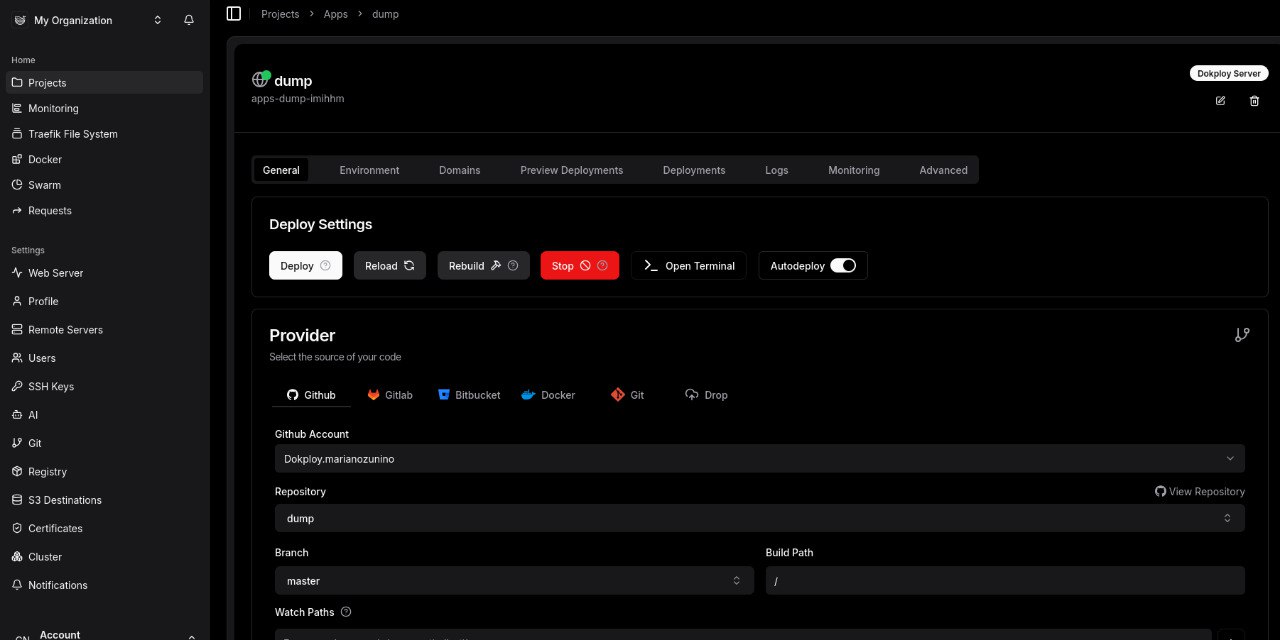Dokploy: A Simple Docker Deployment Solution
My Current Setup
Hardware
- Raspberry Pi 4 with an external SSD
OS
- DietPi
Current Orchestration
I have a folder structure that looks like this:
.
├── traefik
│ ├── config
│ ├── data
│ └── docker-compose.yml
├── uptime-kuma
│ ├── data
│ └── docker-compose.yml
├── vaultwarden
│ ├── data
│ └── docker-compose.yml
└── many more...
├── data
└── docker-compose.yml
The basic idea is to have one docker-compose file per service, and another main file that includes all of them:
include:
- path: './traefik/docker-compose.yml'
- path: './vaultwarden/docker-compose.yml'
- path: './uptime-kuma/docker-compose.yml'
# many more...
networks:
traefik:
name: traefik
Traefik is my entry point for all services. Thanks to Docker’s label system, I can easily configure domains (either local or external) for each service.
The Problem
This setup works perfectly when I’m deploying services that already have a Docker image published on a registry. But now I wanted to deploy some of my own applications.
For my own projects, I used to deploy on Fly.io, which is great, but I wanted to keep everything in-house.
Options
Dokku
This looked like a great option, but I wanted to keep using my already deployed services (all my docker-compose files). Making Dokku work alongside my existing setup seemed complicated.
Maybe it was just a skill issue thinng, but I couldn’t find a way to make it work without re-deploying all my services or doing some complex crap.
Dokploy
I found Dokploy by chance, probably from a Reddit post or Hacker News. After reading the docs, it promised to be a simple solution and exactly what I needed.
And it was! Installation was super easy:
curl -sSL https://dokploy.com/install.sh | sh
After creating the admin account on the website, I was done. I could copy/paste all my docker-compose files and even keep the same network bindings that my services already had.
One really cool thing, is that it creates a Webhook endpoint for each service, so by configuring that on GitHub I get deploys at the glance of a push. No github actions needed!

Why Dokploy Works For Me
- Simple setup: No complex configuration needed
- Works with existing services: Didn’t have to change my current docker-compose setup
- Easy deployment: Can deploy my own apps alongside third-party services.
- Uses Traefik: Integrates perfectly with my existing Traefik setup
Now I can deploy both third-party services and my own applications on my crappy homelab without any hassle.